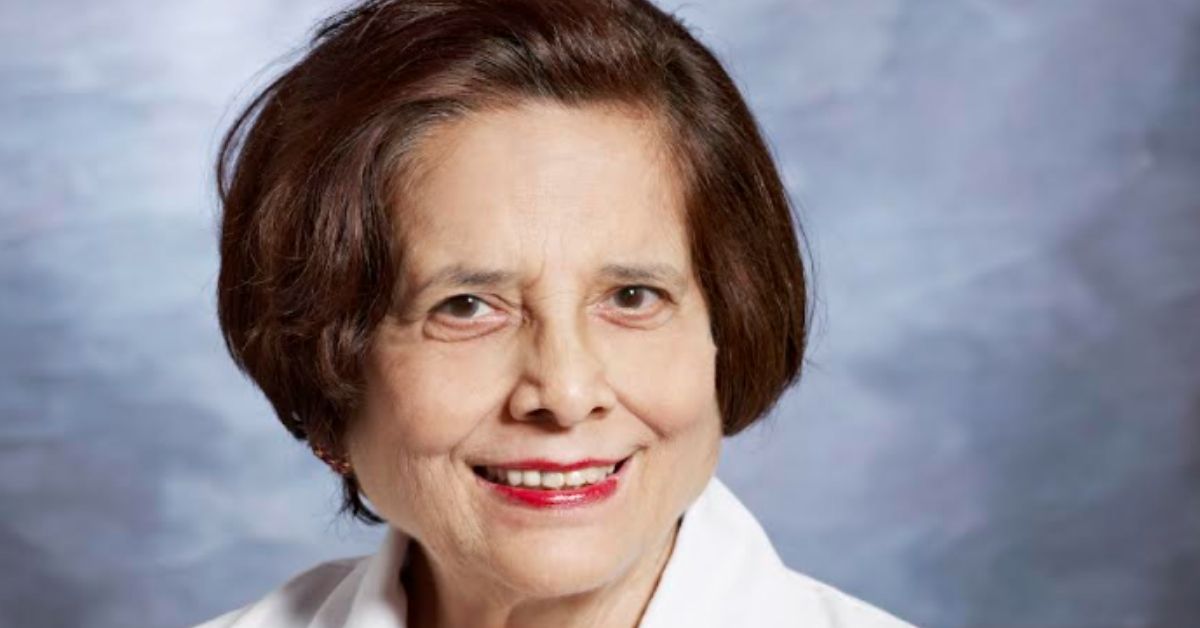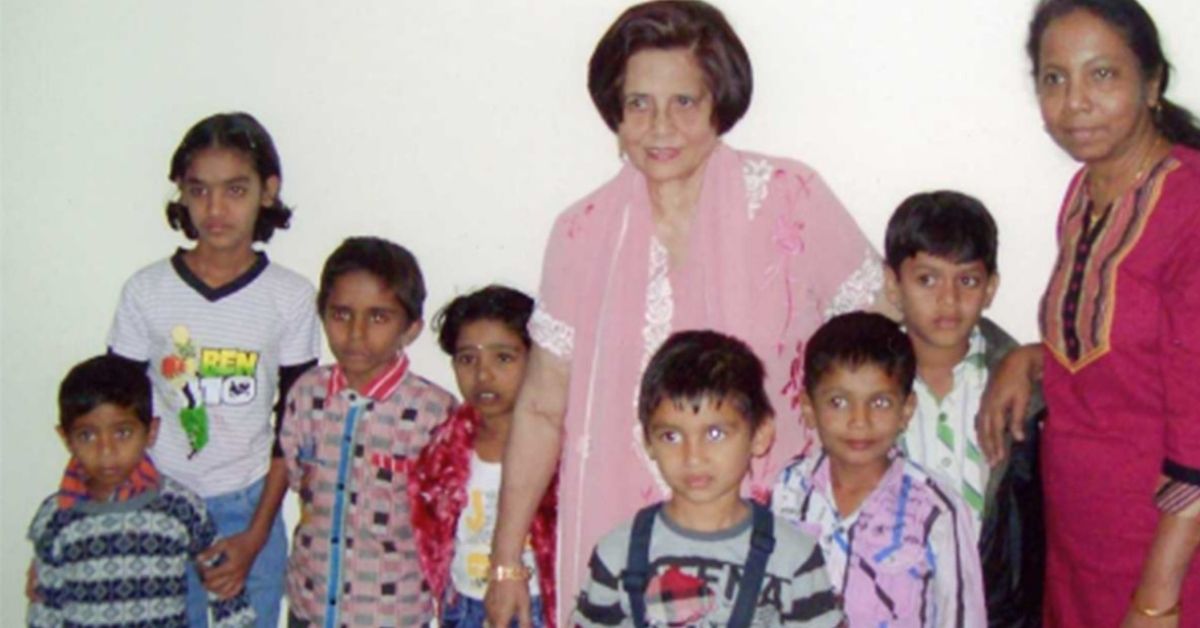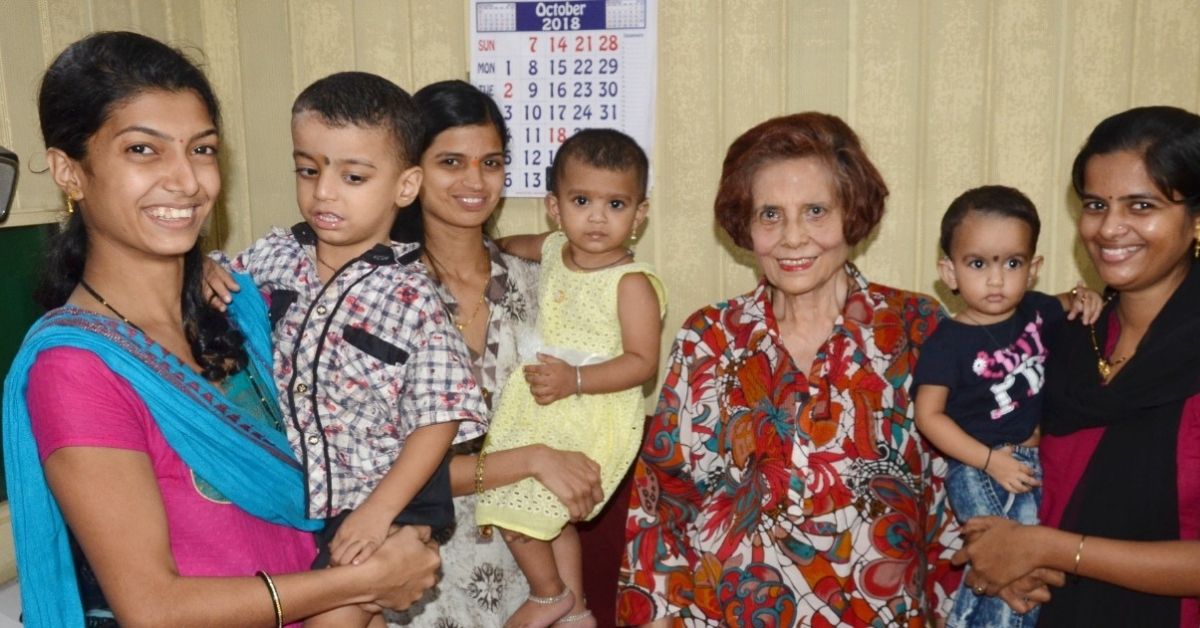In 1957, Nancy Desa founded Stephen High School for the Deaf and Aphasic to provide auditory-verbal training and lessons up to Class 10 to children with hearing impairments. With her husband, renowned neurologist and microscopic surgeon Dr Joe V Desa, she ran the school on the third floor of the Desa Hospital building, and worked with hundreds of children over 39 years, hoping to give them a better life.
Growing up, Nancy’s daughter Sandra watched closely how hearing impairments had affected the lives of these children.
It was this experience, combined with her fascination with microscopic surgery, that pushed her to become an ENT surgeon, she says.

“It broke my heart to see these children struggle to communicate,” Dr Sandra, now 79, tells The Better India. “I remember that my parents used to hold a lot of events to raise funds for the school, so I’d engage with the kids to train them in dancing, theatre and other such activities for the programme. These kids used to wear hearing aids, couldn’t speak, and could only hear loud sounds. There was no surgery as such for them in those days.”
To cover this massive gap in healthcare, Dr Sandra has dedicated 50 years to improving the lives of children living with hearing impairments.
In 1987, she became the first Indian doctor to perform cochlear implant surgery, a feat that earned her a name in the Limca Book of Records. Over the years, her programme to offer surgery to underprivileged children has changed around 2,800 lives, and in 2020, she won the Padma Shri for her efforts.
A New Lease of Life
“I was fascinated with microscopic ear surgery at a very young age, and when I watched my father work, I vowed to become an ENT surgeon,” Dr Sandra says.
Today, there is a gradual decline in gender disparity in the field of medicine, but when Dr Sandra entered the field, things were different, she says. “As a young woman, whenever I had a presentation to give, I was always pushed into a non-prominent hall with hardly any audience. There were barely any women at the operating table as well,” she recalls. “As I became more famous, things changed.”
In 1974, Dr Sandra began working at Jaslok Hospital. Sometime in the 80s, she travelled to the US for a medical conference where she met the owner of a cochlear implant manufacturing company, which first sowed the seeds of bringing the surgery to India in her mind. When she returned, a cochlear implant workshop was organised at Jaslok, where a foreign surgeon demonstrated the procedure on four children. Dr Sandra performed the surgery on the fifth child, becoming the first Indian doctor to do so.
Over the years, she continued to perform such surgeries at Jaslok, but soon, several gaps in India’s healthcare system began to show.

As of the 2011 census, around 50 lakh people in India have some form of hearing impairment. Existing disparities make it only harder for them to access treatment. “In rural communities, a massive problem is the lack of adequate healthcare infrastructure,” Dr Sandra explains. “So the children would have to travel to towns and urban areas to get treatment, for follow-ups, etc.”
In 2002, with colleague Dr Dillion D’souza, Dr Sandra began running a cochlear implant surgery programme for underprivileged children across Maharashtra. “After I performed the first surgery, people from all over India began visiting my centre to have cochlear implants fitted. As the programme went on, I saw that many children coming to our OPDs couldn’t afford to pay the medical bills, which would soar up to Rs 5 lakh. The government didn’t have a robust infrastructure to support such surgeries at the time either. That’s how I approached Dr D’Souza with the idea.”
This programme is funded by various charities, as well as the TATA trust, and caters to children across India, helping them undergo surgery, rehabilitation, and long term follow-ups.

Dr Sandra says that when the programme first began, the ENT fraternity thought it was too soon to begin cochlear implant surgeries in India. “There was no FDA approval for the procedure at the time either,” she recalls. “Moreover, there are still some gaps in terms of follow-ups. When these children go back to their villages, they suffer because of a lack of speech therapists in the areas.”
“Regardless, when I see how children are finally able to speak normally, go to school, and even master two to four languages, I feel triumphant,” she notes.
Over the years, Dr Sandra has attended and organised several national and international conferences, lectures, and workshops in her field. Staying up to date with changing times, she has incorporated changing technologies and advancements to assist persons with hearing impairments across India. She is also the first Indian fellow of the American Otological Society.
On how she has watched the field of medicine evolve over the years, Dr Sandra says, “Today, medicine has become a very tough field. But at almost 80, I see how equipped the younger generation is with fresh knowledge and techniques. As for me, it’s a great feeling to give a patient the ability to hear, and I am happy that this is the field I chose for myself.”
Edited by Yoshita Rao
No comments:
Post a Comment